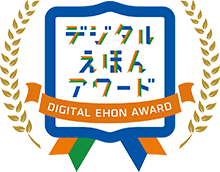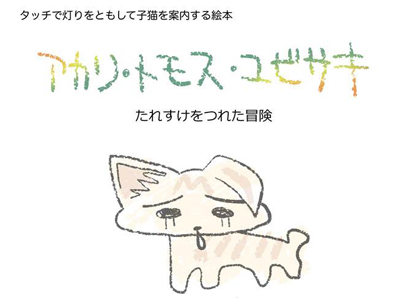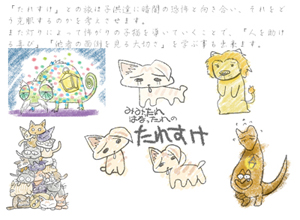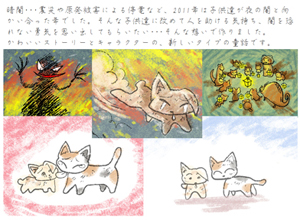 No.1 Grand Prize
No.1 Grand Prize
Akari Tomosu Yubisaki(Lights with fingertips)
Tsugumi Nishino(Japan)
About
One day, every lights are gone as if the whole world has been a blackout.”You” who wake up at the evening find yourself being able to use the magic of lighting with fingertips and find a kitty “Taresuke” being lost and shaking with fear of darkness.You can light street lamps one by one with fingertips, advance mazes by moving lanterns with light by fingers, and take coward “Tareske” to its mother with guiding lights. Utilizing charactaristics of Tablet, kids can take part in the story with toching. Kids can learn “joy of helping someone” and “importance of taking care of others” with guiding a coward kitty by their own.
Prize Comment
I’m deeply impressed by being chosen as such a wonderful prize.Thank you very much.The most charactaristic point of this work is “every readers can be heroes and heroines”. So far, readers of paper books usually reads books by emphathizing with heros and heroines. There are some devices specific to digital format in “Akari tomosu Yubisaki”. Therefore, kids readers can experience the story with being a kitty or friends and cooporating with partners in the story.In this process, I hope that this features can tell readers importance of having the courage and the bond.I am going to complete this work so that everyone in family can enjoy the story together.
Comment by Juror
I think the feeling of warmth is necessary for Digital Ehon. Though digital gives a cool impression, we need to try to break that kind of stereotype. In that sense, “Akari Tomosu Yubisaki” by Tsugumi Nishino is very good, indeed. The idea that guiding the kitty shivering with fear in darkness by the light with fingertips is well, and characters that appears on the way of story are charming. The story is well organized, I hope to see this as complete one. The meaning of turning the light in the story is lighting our hearts and fingertips are the local agency of heart. The works like this would be change the images of digital.(Kenichiro Mogi, neuroscientist)





